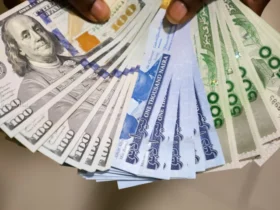
The International Monetary Fund (IMF) has stated that the Nigerian Economic outlook is becoming challenging.
IMF stated this while advicing that capping fuel prices and electricity tariffs below cost recovery could lead to a 3 per cent of GDP fiscal cost for Nigeria.
In the report of the just-concluded Staff Article IV Consultations, which was issued by the Country Office in Abuja on Tuesday, IMF made this known.
IMF stated that,
“Nigeria’s economic outlook is challenging. Economic growth strengthened in the fourth quarter, with GDP growth reaching 2.8 per cent in 2023.
READ ALSO: “I am Not Desperate to Be President; I am Desperate to Make Nigeria Work,” Says Peter Obi
The team led by Axel Schimmelpfennig, IMF mission chief for Nigeria, visited Lagos and Abuja on February 12–23, 2024, to hold discussions for the 2024 Article IV Consultations with Nigeria.
The staff urged the federal government to implement social safety nets through the cash-transfer programme before addressing the fuel subsidies and electricity tariffs below cost recovery.
According to the report, “Recently approved targeted social safety net program that will provide cash transfers to vulnerable households needs to be fully implemented before the government can address costly, implicit fuel and electricity subsidies in a manner that will ensure low-income households are protected.
“The capping of fuel pump prices and electricity tariffs below cost recovery could have a fiscal cost of up to 3 per cent of GDP in 2024.”

“This falls slightly short of population growth dynamics. Improved oil production and an expected better harvest in the second half of the year are positive for 2024 GDP growth, which is projected to reach 3.2 per cent, although high inflation, naira weakness, and policy tightening will provide headwinds.
“With about 8 per cent of Nigerians deemed food insecure, addressing rising food insecurity is the immediate policy priority.








Leave a Reply